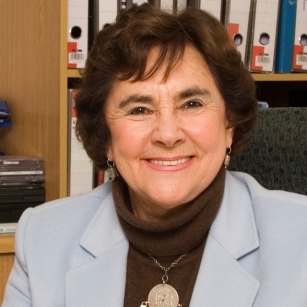
Lifestyle/Community

Changing racial, religious stereotypes among young
TALI FEINBERG
“I feel uncomfortable by the frequent screening, knowing that there are so many unsung heroes who are doing incredible work, particularly within our underprivileged communities,” says Silbert, although she says she is appreciative of the heart-warming response to the feature.
Quiet-spoken Silbert does not necessarily fit the preconceived mould of a “superhero”, but she has achieved so much by engaging teenagers of all religions in her programme.
“Twenty years into the New South Africa, racial, cultural and socioeconomic tensions still abound, fuelled to a large extent by international conflicts. Many free-thinking teenagers seek to find their own solutions, yet due to the racially divided society in which we still live, it is not always easy for young people to meet in a safe environment.”
Thus, the interfaith initiative aims to forge relationships; create a greater understanding of each other; teach respect for people from different religions, faiths, cultures, and backgrounds; promote empathy, responsibility, peace, social cohesion, reconciliation, and social activism; enhance self-development; strive to combat all forms of prejudice and injustice; and be aware of contemporary issues.
A tall order for teenagers, but over 170 young people have taken part in this intensive two-year course. It begins in grade 10, when participants attend a series of monthly workshops hosted by each of the participating schools. During the second six months, they are encouraged to introduce interfaith societies and peace clubs within their schools and twin with other schools.
They also spend time engaged in community service projects, which include collecting resources for people living in poverty; spending time with young people who are mentally or physically challenged; and with the aged; or actively addressing environmental issues.
Learners also spend a weekend together at a camp, which provides an opportunity for ongoing social interaction and debate.
A variety of excursions are organised, including an education programme on Robben Island, visits to places of worship where they interact with the various faith leaders, and visits to museums.
In the second year of the programme, in partnership with the Amy Biehl Foundation, the participants spend one afternoon a week at Mimosa Primary School in Bonteheuwel where they tutor disadvantaged primary school pupils. This extends over a whole academic year.
The programme has grown exponentially and participants come from all over the Cape Peninsula.
“At this stage the programme takes place only in Cape Town. However, it would be so gratifying if it could be implemented further afield,” says Silbert.
She says the biggest challenge is funding, and expanding the programme would necessitate employing additional facilitators and organisers. “We would like to have more than one group of 40 learners attending the programme each year, but we cannot do so with our current limited resources.”
Participants have given remarkable feedback and perhaps they themselves put it best. Said one learner from South Peninsula High School: “This was the first time I met Jewish people and it broke down all the stereotypes I had about Jews. I am ashamed of the attitudes I had towards them when I didn’t even know any Jews. I have become a new and better person.”
A learner from Phoenix Secondary made the following comment: “The area where I live, we are faced with a gangster problem. I nearly joined one of the gangs but this programme has not only taken me off the street, but has taught me that I can overcome hardship and that I am able to make a better life for me and my family.
“I have really learnt so much, not only about myself, but about people from different religions, cultures and backgrounds. I am so grateful to have been included in this programme.”
* For more information, email ctii@iafrica.com or visit www.ctinterfaith.org.




